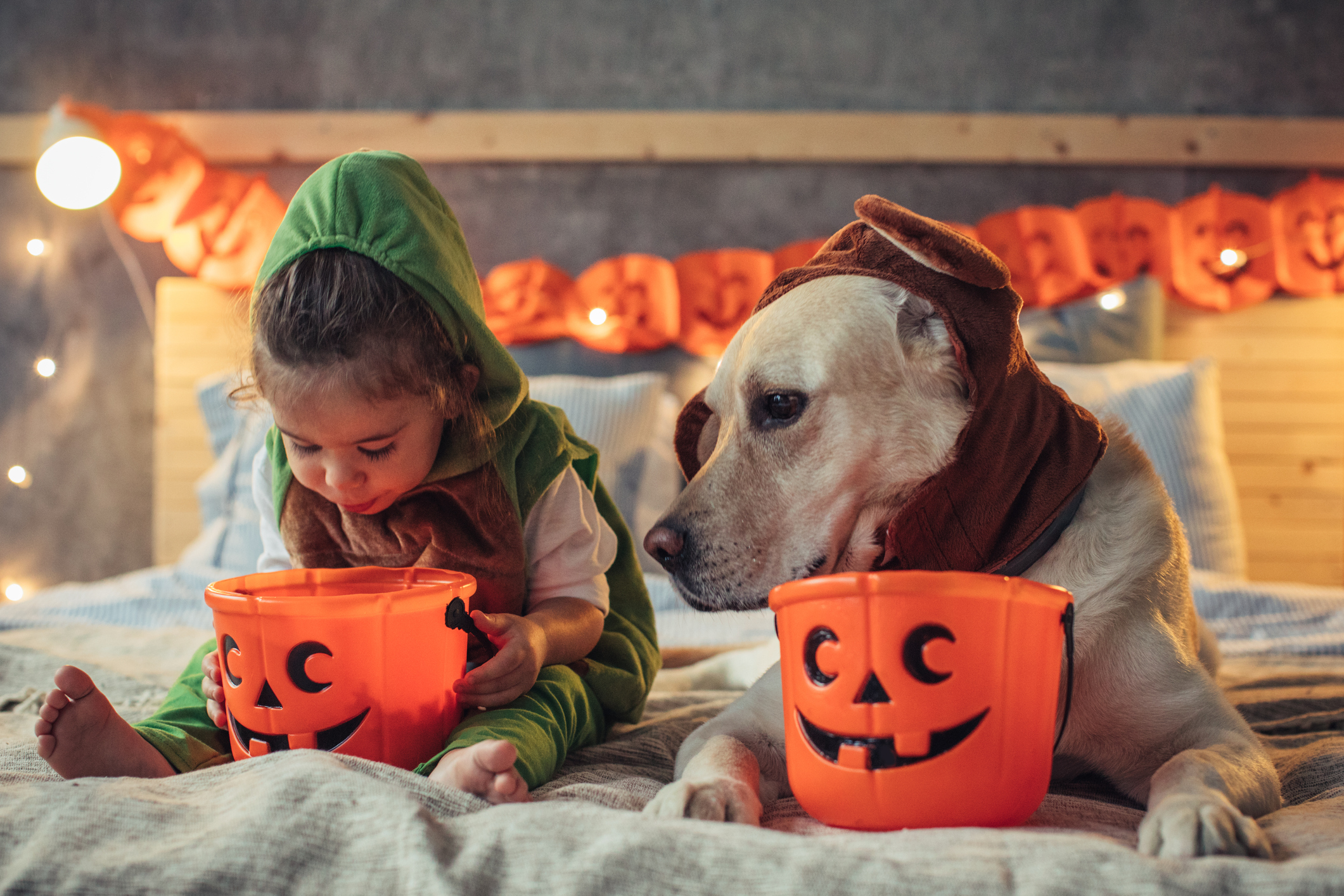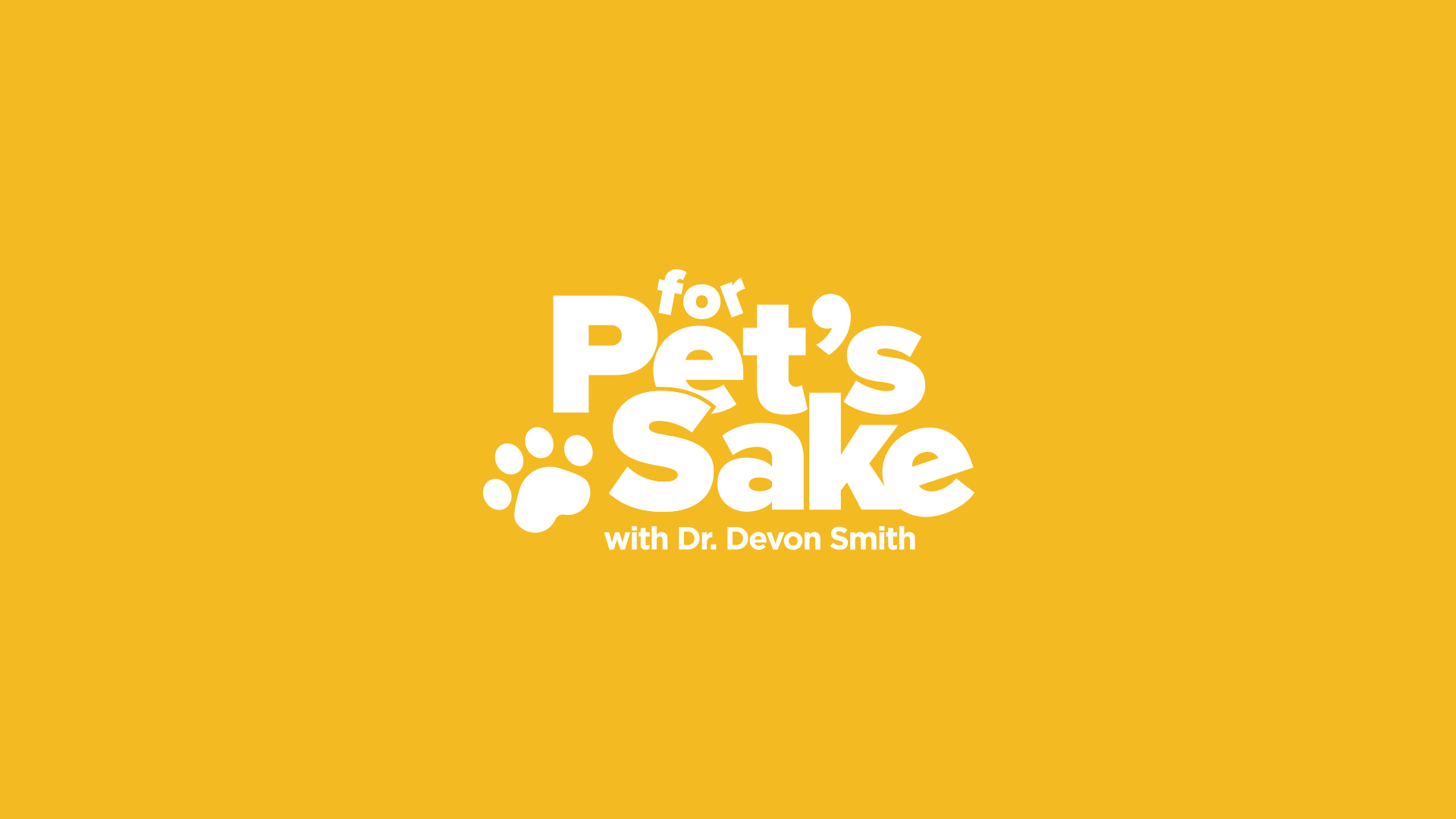
Oct 15, 2022 | By, For Pet's Sake
Halloween candy and your pet: What you need to know
It’s that time of year again! As the leaves start to change color and pumpkins start popping up on porches, we know that Halloween is just around the corner. And while Halloween is a fun time for humans, it can be a dangerous time for our furry friends. Every year, countless pets end up in the ER after ingesting Halloween candy that is harmful—and even lethal—to them. So, before your dog indulges in your child’s candy stash this Halloween, make sure you know which types of candy can be dangerous (and even deadly) for dogs.
Chocolate
Probably the most well-known type of candy that is dangerous for dogs is chocolate. Depending on the type and amount of chocolate ingested, it can cause vomiting, diarrhea, tremors, seizures and even death. The darker the chocolate, the more dangerous it is; however, all chocolate should be avoided.
Candy wrappers
Another hazard to watch out for are candy wrappers. If ingested, they can cause blockages or tears in your dog’s digestive system. They can also cause choking or other respiratory problems if they become lodged in your dog’s throat. Be sure to pick up any stray wrappers that may have fallen on the ground, and keep an eye on your dog while they are trick-or-treating to make sure they don’t eat any wrappers along with their candy.
Sugar-free candy
Sugar-free candy often contains xylitol, a sugar substitute that is safe for humans but poisonous to dogs. Even small amounts of xylitol can cause low blood sugar, seizures, liver failure, and even death in dogs.
What to do if your dog eats Halloween candy
If you think your dog has ingested something they shouldn’t have, the first thing you should do is call your veterinarian or the American Society for the Prevention of Cruelty Animal Poison Control hotline immediately. Do not try to make your dog vomit unless instructed to do so by a professional. Once you have contacted a professional, they will instruct you on what to do next. In some cases, they may recommend bringing your dog into the office for observation or treatment. In other cases, they may tell you that everything will be fine and that you can treat your dog at home with some simple home remedies, such as rest and plenty of fluids.
This Halloween, keep your eye on the candy bowl to make sure your furry friend doesn’t help themselves to anything they shouldn’t have. And if they do ingest something they shouldn’t have, don’t panic—just call your veterinarian or local animal hospital right away. By taking some simple precautions, you can help ensure that everyone in your family has a happy and safe holiday season!
Have a question about pet health? Want to become the best possible pet parent? Find helpful tips, reminders, and insight to giving your furry friend the best possible care with For Pet’s Sake! Learn more at drdevonsmith.com.

